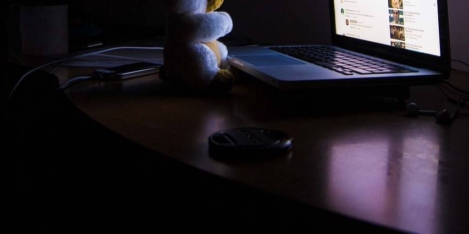May 23, 2018
Employers needs to do more to support working families
 Tackling unsupportive workplace cultures is crucial in helping parents achieve a better work life balance, according to a new study from lobby groups Working Families and Bright Horizons. The 2018 Modern Families Index: how employers can support the UK’s working families, published by work life balance charity Working Families and Bright Horizons, claims to expose the limitations of policies like flexible working, whilst unsupportive workplace cultures remain in place. Many parents feel compelled to work far beyond their contracted hours to meet managers’ expectations and to progress in their careers, according to the report. When parents were asked how they felt about their employer in terms of work-life balance, over a third (34 percent) of parents said they felt resentful, with more fathers than mothers agreeing (37 percent vs. 32 percent). Millennials were the most resentful; 46 percent of millennial fathers felt resentful, the highest proportion of any group of parents.
Tackling unsupportive workplace cultures is crucial in helping parents achieve a better work life balance, according to a new study from lobby groups Working Families and Bright Horizons. The 2018 Modern Families Index: how employers can support the UK’s working families, published by work life balance charity Working Families and Bright Horizons, claims to expose the limitations of policies like flexible working, whilst unsupportive workplace cultures remain in place. Many parents feel compelled to work far beyond their contracted hours to meet managers’ expectations and to progress in their careers, according to the report. When parents were asked how they felt about their employer in terms of work-life balance, over a third (34 percent) of parents said they felt resentful, with more fathers than mothers agreeing (37 percent vs. 32 percent). Millennials were the most resentful; 46 percent of millennial fathers felt resentful, the highest proportion of any group of parents.





















 UK office workers spend an alarmingly limited amount of time outdoors each day, claims new research from Ambius, which found that almost 40 percent spend a maximum of just 15 minutes outside, excluding their commute to work, and an additional 22 percent spend a maximum of 30 minutes outside. This is even less than prisoners, who require ‘at least one hour of suitable exercise in the open air daily’, according to UN guidelines. On average, the British workers surveyed spend more time per day at their desk or workstation (6.8 hours) than they do in bed (6.4 hours), relaxing at home (3.5 hours) or outdoors (37 mins). A lack of fresh air (57 percent), insufficient natural light (49 percent), and an absence of indoor plants (36 percent) were the biggest source of frustration for employees. Introducing indoor plants (49 percent), nicer artwork (50 percent), and a more interesting colour scheme (54 percent), topped the list of employees’ requests to improve their workplace.
UK office workers spend an alarmingly limited amount of time outdoors each day, claims new research from Ambius, which found that almost 40 percent spend a maximum of just 15 minutes outside, excluding their commute to work, and an additional 22 percent spend a maximum of 30 minutes outside. This is even less than prisoners, who require ‘at least one hour of suitable exercise in the open air daily’, according to UN guidelines. On average, the British workers surveyed spend more time per day at their desk or workstation (6.8 hours) than they do in bed (6.4 hours), relaxing at home (3.5 hours) or outdoors (37 mins). A lack of fresh air (57 percent), insufficient natural light (49 percent), and an absence of indoor plants (36 percent) were the biggest source of frustration for employees. Introducing indoor plants (49 percent), nicer artwork (50 percent), and a more interesting colour scheme (54 percent), topped the list of employees’ requests to improve their workplace.











May 2, 2018
The quest for wellbeing has taken over from our search for productivity
by Mark Eltringham • Comment, Wellbeing, Workplace design
(more…)